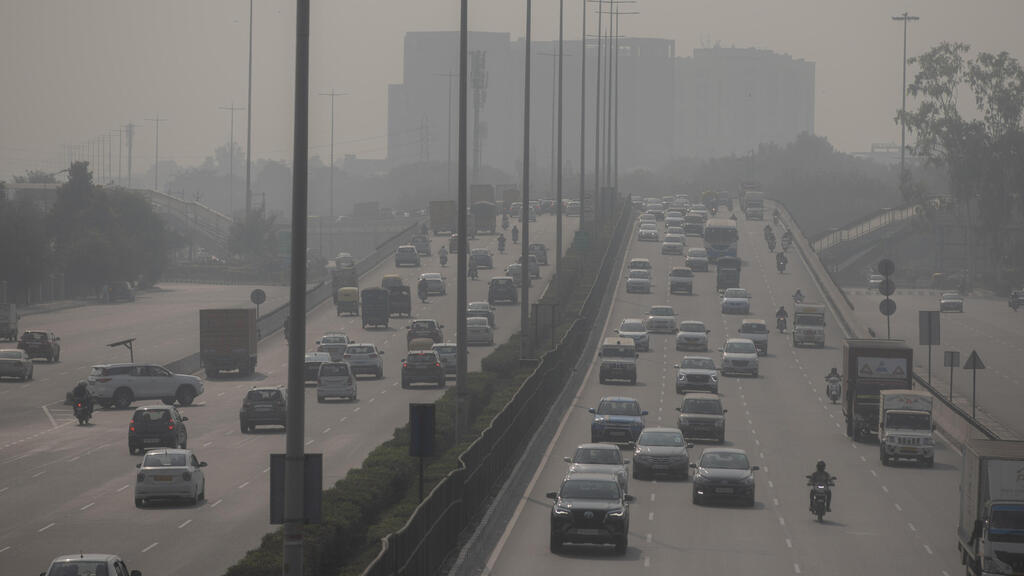With the unprecedented lockdowns and additional measures designed to minimize the spread of the coronavirus, people around the globe reduced their activities significantly, visiting stores and entertainment venues less often, curtailing the number of trips and especially flights they took, and working and studying from home.
The large shift of activities from offices to homes has revealed new opportunities for enhancing sustainability, according to a study conducted in Cyprus on remote working.
The study was conducted by a team of researchers from Lithuania, Cyprus and Germany. It was published in the journal Energy Sources Part A: Recovery, Utilization, and Environmental Effects, and recently highlighted on the website of Kaunas University of Technology in Lithuania, which coordinated the research.
The study established “impact indicators” that measure the contribution of remote working models to energy savings and environmental improvement, and found that at least 4 liters of transportation fuel and 7.4 kg of carbon dioxide can be saved per hour of remote work per 100 employees.
“Many energy and environmental-related benefits arise with remote working. These are mainly related to the elimination of the necessity to commute to the main premises of the organization, or the reduction of the distance required traveling to the co-working space,” said Dr. Paris Fokaides, an assistant professor in the School of Engineering at Frederick University, Cyprus.
6 View gallery


Dr. Paris Fokaides, an assistant professor in the School of Engineering at Frederick University, Cyprus, led the research team
(TheMediaLine)
“Co-working” refers to a model in which employees work in an office or another working environment alongside people who are self-employed or working for different employers.
The study investigated the role of teleworking during the COVID-19 pandemic and its impact on sustainability in the context of smart cities.
“We have used as a case study the working habits of a university staff, where mixed scenarios of a home office – co-working and office working were developed with the use of location-allocation modeling,” explained Fokaides.
According to Fokaides, the main energy-saving and environmental benefit of remote work is less use of transportation, which means reduced consumption of fuel and emission of carbon dioxide and other atmospheric pollutants.
Fokaides added that working remotely had other direct and indirect environmental impacts, such as reduced noise pollution, diminished need for land for road networks and infrastructure, decreased road congestion and savings in energy and material resources from less use of paper and plastic.
The study noted that Cyprus, where the research was conducted, is a place “where air conditioning systems constitute a major consumer of energy, especially in large office spaces and facilities,” and that with employees working from home, “the need for electricity for space cooling purposes was eliminated.” This claim seems exaggerated. Even under lockdown conditions, offices require some cooling, both for skeleton staffs that continue to come to work and for sensitive equipment, such as computer servers, that would be damaged if left uncooled.
On top of that, at least some of the reduced demand for electricity in the office will be offset by an increased demand to cool the employees’ homes. And one might assume that home air conditioning units are less efficient than the systems used in large offices.
The study did find that power consumption in Cyprus was reduced by 25% during a period of lockdown from March 15 to April 26, 2020, compared to the corresponding period in 2019. But it’s unclear if one could expect similar reductions in power consumption in an economy that makes a permanent shift to widespread remote working but that is not under lockdown due to a major pandemic.
Does working from home reduce the overall demand for energy to run a business or merely shift some of the burden from the employer to the employees? Further research on this question is needed and has particular importance in the Middle East and North Africa region, where air conditioning is especially important.
Another key finding of the study was that teleworking could make a significant contribution to the development of smart cities, in particular by reducing the need for transportation.
In a smart city, digital and telecommunication technologies are used to make traditional networks and services more efficient. This means using smart urban transport networks, upgraded water supply together with waste disposal facilities, and smart energy-efficient buildings, all of which save on the energy and material resources and minimize carbon emissions.
A smart city includes various electronic methods and sensors to collect real-time data from citizens, devices, buildings, and other assets that can then be processed to manage facilities and resources more efficiently. This can enhance the sustainability of a wide variety of public assets and services, such as traffic and transportation systems, power plants, utilities, water supply networks, waste, crime detection, information systems, schools, libraries, hospitals, and other community services.
“Smart cities target the improvement of the quality of life of its citizens, as well as the strengthening of the economy through the promotion of sustainable urban mobility and the increased use of clean and energy-efficient vehicles,” says Fokaides.
The pandemic will trigger permanent changes connected to the digitalization of work and other daily activities, predicts Fokaides, leading to a reduced need for mobility and lowered consumption of fossil fuels.
The story is written by Steven Ganot and reprinted with permission from The Media Line






